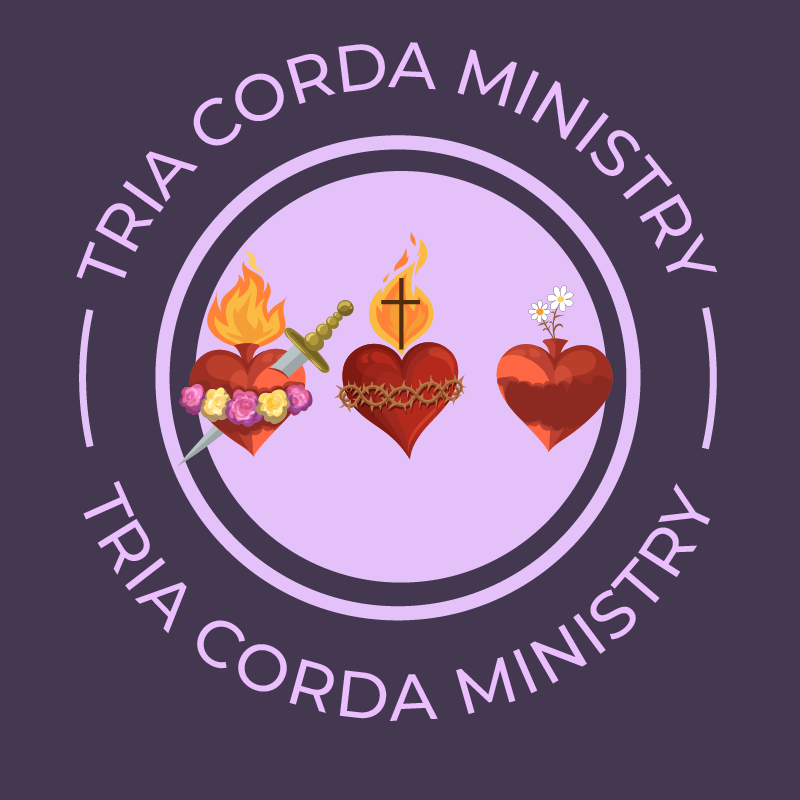Many different factors can improve resilience, including mental health. In this article, we’ll discuss research about resilience and mental health and two main ways that we can improve our mental health.
This page may contain affiliate links. As an Amazon Associate I earn from qualifying purchases, at no extra cost to you. Thank you for your support of Tria Corda Ministry!
Research About Resilience and Mental Health
Researchers have found that many things associated with the mind can improve resilience, including:
- Being able to control your thoughts and be flexible in your thinking (1)
- Believing that you can accomplish certain things (1)
- Optimism (2)
- Self-confidence (2)
- Mindfulness, or staying in the present moment (3)
- Growth mindset, or believing that you can improve your abilities with effort (Resilient by Rick Hanson)
The positive cognitive triad, or having positive views of yourself, others, and the world around you, summarizes these factors well (5). This positive cognitive triad is essential for good mental health, and mental difficulties can arise when things go awry in these areas.
How to Improve Mental Health
We can improve our mental health in two ways: knowing the truth and healing from lies we have come to believe. We’ll consider each of these below.
Knowing the Truth
In my clinical psychology studies, one of the types of therapy we learned most about was cognitive-behavioral therapy, which is one of the most effective therapies out there for wide-ranging issues such as depression, anxiety, and eating disorders.
Cognitive behavioral therapy’s basis is that how we think determines how we feel and behave. The ABC model sums up this idea well. It consists of the following:
- Antecedent: A situation triggers a response
- Consequences: The situation leads to certain feelings or behaviors
- Beliefs that the antecedent triggers connect the antecedent and consequences.
When these beliefs are not rooted in reality and are negative, that’s when mental health problems can develop. The goal of cognitive-behavioral therapy is to discover these beliefs and then challenge them. You can learn more in Change Your Thinking by Sarah Edelman.
Additionally, from a Catholic perspective, the truth is an important part of Jesus’ mission. He tells us that the truth will set us free (John 8:32). Sin occurred because Satan, the father of lies, fed lies to Eve that God was not a loving, caring Father, leading her to disobey His will. Today, Satan still tries to get us to believe lies because when we believe them, we do not act or think in line with God’s truth, leading to sin. Jesus came to free us from Satan and his lies.
Therefore, knowing the truth about ourselves, others, and God is essential. In 13 Powerful Ways to Pray, Fr. Tobin says that the most important truth we need to know is that God is an unconditional lover, and all people, including ourselves, are loveable and loved by God. Every other piece of truth flows from that. And when we believe that, we’re more likely to love God, ourselves, and others better.
So, how do we learn the truth?
In Into His Likeness, Dr. Sri recommends that disciples of Jesus regularly read the Bible and the Catechism. He also recommends solid Catholic writings and the writings of the saints. This reading helps to transform one’s mind to be more in line with the truth about God, oneself, and others.
Healing From Lies
We live in a fallen world, and many have fallen into believing lies. This is why St. Paul calls us to a renewal of the mind (Romans 12:2) so we can know
God’s will and be more like Him.
How do we come to believe lies? Often through wounds.
In Be Healed, Dr. Bob Schuchts describes the process by which we may come to believe lies in these areas.
First, we may experience a wound, such as trauma or some other hurtful event.
This wound can lead us to develop beliefs or lies about ourselves, God, or others. For example, if we face rejection, we may believe that God will reject us or we are unlovable.
These beliefs can lead us to make inner vows or rules to follow to help us avoid similar hurts in the future. For example, in the example above, we may distance ourselves from God and others due to these beliefs.
The goal of healing is to uncover these beliefs and vows and counter them with the Lord’s truth.
How do we do this?
Therapy can be helpful if you feel you need someone to accompany you through this process. Other healing resources, such as Be Healed, can help you go through this process in prayer. You can check out a list of healing resources here.
Conclusion
Mental health is essential for resilience, so you can heal from trauma, carry crosses, and ultimately, flourish. To apply these ideas, I encourage you to pick one of these two areas and work on adding a consistent habit.

